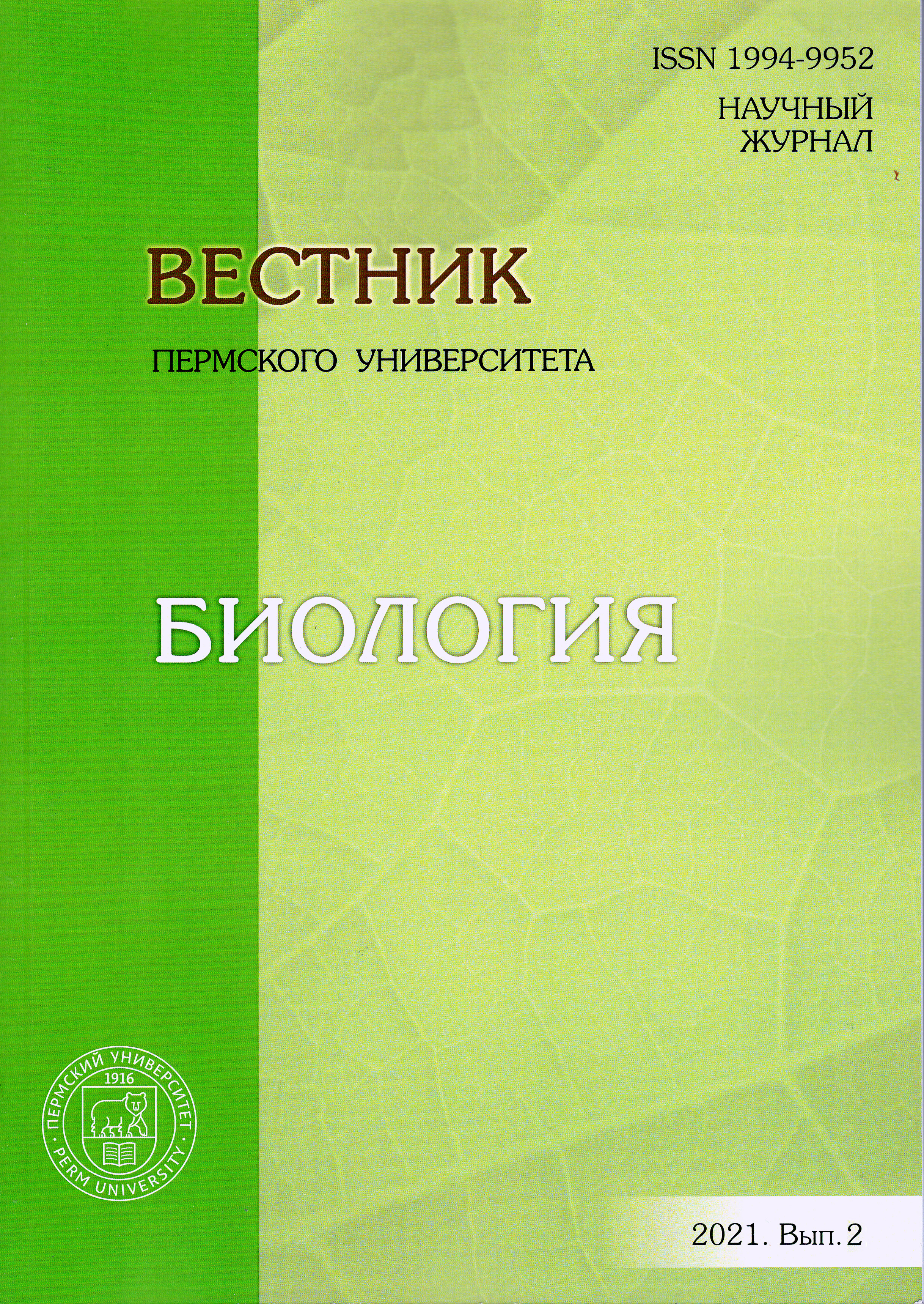Influence of temperature processing on the constitutive and inducible resistance of rye seedlings to chloride salinization
Main Article Content
Abstract
Article Details
References
Ахмад П., Джалил К.А., Шарма С. Влияние солевого стресса на систему антиоксидантной защиты, перекисное окисление липидов, ферменты метаболизма пролина и биохимическую активность у двух генотипов шелковицы // Физиология растений. 2010. Т. 57, № 4. С. 547–555.
Большой практикум «Биохимия»: лабораторные работы / сост. М.Г. Кусакина, В.И. Суворов, Л.А. Чудинова. Пермь, 2012. С. 26–35.
Ефимова М.В. и др. Физиологические механизмы устойчивости растений Solanum tuberosum L. к хлоридному засолению // Физиология растений. 2018. Т. 65, № 3. С. 196–206.
Карпец Ю.В., Колупаев Ю.Е. Ответ растений на гипертермию: молекулярно-клеточные аспекты // Вестник Харьковского национального аграр-ного университета. Серия: Биология. 2009. Вып. 1 (16). С. 19–38.
Колупаев Ю.Е., Вайнер А.А., Ястреб Т.О. Пролин: физиологические функции и регуляция содержания в растениях в стрессовых условиях // Вестник Харьковского национального аграрно-го университета. Серия: Биология. 2014. № 2. С. 6–22.
Колупаев Ю.Е., Карпец Ю.В. Формирование адаптивных реакций растений на действие абиотических стрессоров. Киев: Основа, 2010. 352 с.
Кузнецов Вл.В. Общие системы устойчивости и трансдукция стрессорного сигнала при адаптации растений к абиотическим факторам // Вестник Нижегородского университета им. Н.И. Лобачевского. Серия: Биология. 2001. Б/н. С. 64–68.
Радюкина Н.Л. и др. Изучение индуцибельных и конститутивных механизмов устойчивости к солевому стрессу у гравилата городского // Физиология растений. 2007. Т. 54, № 5. С. 692–698.
Титов А.Ф., Таланова В.В. Устойчивость растений и фитогормоны. Петрозаводск: Карельский научный центр РАН, 2009. 206 с.
Чиркова Т.В. Физиологические основы устойчивости растений. СПб.: Изд-во СПбГУ, 2002. 244 с.
Чудинова Л.А., Суворов В.И. Роль некоторых низкомолекулярных соединений в механизме перекрестной адаптации растений // Вестник Пермского университета. Серия: Биология. 2011. Вып. 1. С. 17–20.
Шевякова Н.И. и др. Регуляция абсцизовой кисло-той содержания полиаминов и пролина в растениях фасоли при солевом стрессе // Физиология растений. 2013. Т. 60, № 1. С. 1–13.
Bates L.S., Waldren R.P., Teatre I.D. Rapid Determination of Free Proline for Water Stress Studies // Plant and Soil. 1973. Vol. 39. P. 205–207.
Hare P.D., Cress W.A., Van Staden J. Proline synthesis and degradation: a model system for elucidating stress-related signal transduction // Journal of experimental botany. 1999. Vol. 50, № 333. Р. 413–434.
Kant S. et al. Evidence that differential gene expression between the halophyte Thellungiella halophila and Arabidopsis thaliana is responsible for higher levels of the compatible osmolyte proline and tight control of Na+ uptake in T. halophila // Plant Cell and Environment. 2006. Vol. 29, № 7. Р. 1220–1234.
Ryu S.B. et al. Induction of cold hardiness by salt stress involved synthesis of cold and abscisic acidresponsive proteins in potato (Solanum commersonii Dun.) // Plant and cell physiology. 1995. Vol. 36, № 7. Р. 1245–1251.
Zhu J.K. Plant salt tolerance // Trends Plant Sci. 2001. Vol. 6. P. 66–71.




